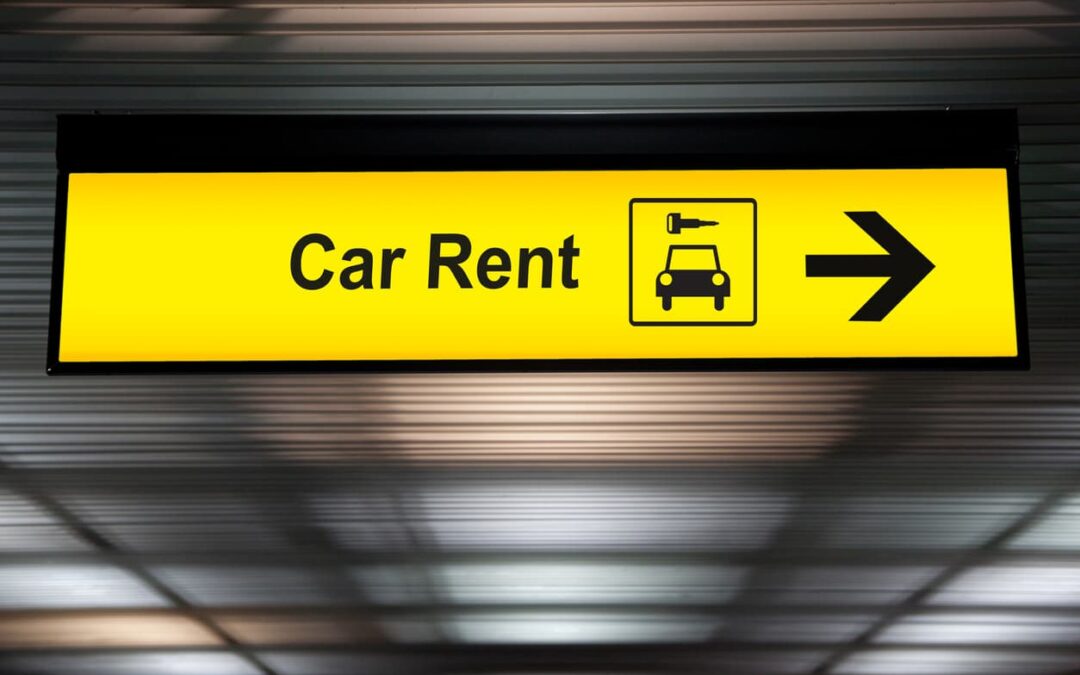New York auto insurance can’t always be relied on to cover rental excursions. Here’s what to consider.
Car rentals are big business in America, with over 15,500 companies offering temporary vehicles. And local supply and demand plus high parking costs caused by limited storage space are two reasons why New Yorkers usually pay more to rent a car (here’s a cost-cutting guide for locals and visitors).
It pays to know how well personal auto coverage protects rentals. Driving without adequate insurance is a terrible idea—and for some New York drivers, rental coverage may be the only auto policy protecting them. This guide helps you figure out what insurance is necessary, making your next rental a more confident experience.
What existing auto policies usually cover
Rental car companies are concerned about the same things drivers and insurance providers are—staying protected against the expenses of accidents and any liability stemming from them. And while it’s likely the personal car insurance you already have will protect you, that’s not guaranteed.
Already being covered for collision and liability can sometimes be all you need. You may also find your existing health insurance covers any potential medical expenses incurred in a rental car accident.
There are also other concerns involving owned or rented vehicles, however, such as theft or damage to personal property kept in the car. A home or renters (property rental, that is) policy is designed to cover those incidents, not standard auto policies, as some drivers assume. Thus, if you lack homeowners or renters insurance, you may want to buy personal effects coverage from the rental company.
Exactly how much the policyholder is covered on all these fronts will vary between individuals and plans.
Some reasons car rental insurance may be required
Extra coverage can be expensive, depending on how long the rental lasts and which car model is driven. One upside of taking out a rental car policy is that a driver’s personal insurance premium won’t be affected by any incidents that take place under the rental agreement. Another is that auto rental insurance often comes with a low deductible and sometimes none at all.
It’s generally good to supplement existing primary coverage that may not provide enough financial protection for a serious accident. This is ultimately a choice. However, rental insurance can sometimes be necessary, depending on the type of vehicle rented. Some vehicles—such as an extremely expensive sports car—aren’t covered under personal auto policies, meaning a rental will need extra, specific protection. Your risk profile may also factor into whether a rental outlet will require further coverage.
The takeaway here: know how comprehensive your existing auto/home/renters/health coverage is, how much it pays out, and what type of vehicles and incidents it covers. This helps decide if extra rental protection is necessary or perhaps just a good idea. It’s recommended to consider some added liability protection since medical fees can be exorbitant, along with a collision-damage waiver if you’re deemed a high-risk driver.
Rental insurance and credit cards
Many major credit cards automatically offer some rental car insurance. Coverage limits and conditions will vary by provider, but these agreements generally protect against damage to or theft of the vehicle. Credit card coverage can be considered “primary” or “secondary,” which affects how claims are submitted.
Primary coverage allows claims to be filed directly to the credit card company, which can help avoid paying a deductible and maybe keep your personal insurance rates unchanged. Secondary coverage has to go through other insurers like auto, home, renters, or health first, which may negatively impact premiums.
Rental car coverage from some (but not all) credit card companies can provide some level of Personal Injury Protection (PIP). New York drivers must ensure that any PIP offered by their credit card company meets the minimum standard amounts currently required by the state. They are:
- $50,000 per person
- $2,000 death benefit
- 80% of lost income up to $2,000/month
- $25 per day for services
Rental coverage via credit cards is also much shallower than the protection from a dedicated auto insurer or the rental company. Liability and protection of personal effects are usually left up to the customer, and extended rental periods could make credit card coverage inadequate.
Using your credit card can be an excellent supplement to good auto, home, renters, or health insurance policies that you already have, however. New York residents don’t require a credit card to rent a car, but cash payments may incur paying deposits and going through driver screening.
What is rental car reimbursement insurance?
This coverage (sometimes called loss of use) pays for the cost of a rental car only and comes with two caveats. It’s only available from a personal auto insurer for drivers whose car is currently off-road for repairs and those who already have comprehensive or collision insurance. This type of coverage won’t pay out for rental accidents or the cost of a rental used for recreation.
Some final thoughts on auto rental insurance
Investing in rental coverage is usually a personal choice involving a cost-benefit analysis. For example, if your personal coverage is extensive and you’re a confident, low-risk driver, you could avoid getting extra insurance. Or you might still get additional rental car insurance to avoid any accident, theft, or another claim affecting the personal policy. But these excess policies are not strictly necessary unless you lack sufficient personal insurance or rent a model not covered by your individual policy.
Consider these factors, along with credit card coverage and the cost of extra rental car coverage, to make the best choice for you. And if you are traveling on business and will be reimbursed for additional coverage, it’s always a good idea to get it!
The NICRIS Insurance team is here to offer advice on the best policies to protect you and your property. We can provide a free, personalized review to match the right policy to your circumstances and potential risks, or you can simply contact us with any questions.

